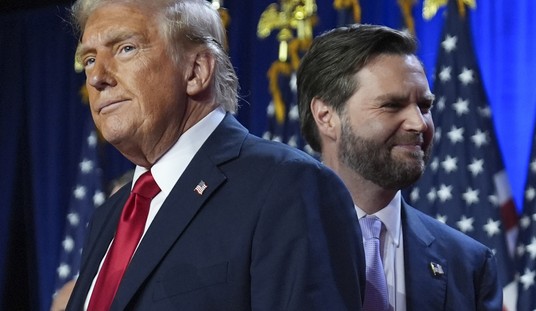A few weeks ago I had coffee in Copenhagen with two nice individuals from RAND Corporation, the US government funded think tank. One of them, Cheryl Benard, is involved in network building among moderate or secular Muslims. She turned out to be quite optimistic on behalf of the future of moderate Muslims, and renounced the common held view that
1) Moderate Muslims don’t exist.
2) And if they exist they are lonely, isolated individuals with no support in the Muslim world.
3) And if they exist and are being listened to in parts of the Muslim world, they don’t want our help because it will discredit them in the eyes of their fellow citizens.
”It’s my impression that all three statements are wrong,” Cheryl told me.
The next day she left a book for me at the desk of her hotel. The title is ”Building Moderate Muslim Networks” (RAND Center for Middle East Public Policy), and it is coauthored by Cheryl Benard, Angel Rabasa, Lowell H. Schwartz and Peter Sickle. I found it very illuminating and applicable in practise, and here are some of the points.
Inside government there is a huge bulk of knowledge about how to fight a totalitarian ideology that is not being used. Nevertheless, some of the lessons from the Cold War need to be put to use in the war on Islamism. There are obvious parallels between the two. As in the late 1940s, the West is confronted with a new and confusing geopolitical environment with new threats, an ideologically driven global jihadist movement striking with acts of mass-casualty terrorism and seeking to overturn the international order. During the early Cold War years there was a recognition that the US and its allies were engaged in an ideological conflict between liberal democracy and Communism, a battle for the hearts and minds of audiences behind the Iron Curtain and in Western Europe. Today the US is involved in a war in which ultimate victory will achieved only ”when extremist ideologies are discredited in the eyes of their host populations and tacit supporters.” (Quadrennial Defense Review Report, 2006).
US and Western network-building efforts are now regarded as one of the key reasons for the victory in the Cold War, but there is currently no explicit policy to build moderate Muslim networks in the Muslim world and the West. Several factors contributed to the succes of anti-communist networking during the Cold War:
1) The development of democratic networks was closely tied to a grand strategy.
2) Networking efforts tapped into existing movements and organizations that already existed in Western Europe.
3) The US government managed to strike a balance that allowed the groups it supported a high level of independence.
The authors present a road map for moderate network building in the Muslim world. Unfortuntely, most governments have not been able to work out a clear set of criterias to distinguish moderate Muslims from radicals or islamists, and in several cases governments have provided islamists with funding and given them status as partners for government.
How do we identify moderate Muslims?
Moderate Muslims are those who share the key dimensions of democratic culture. These include support for democacy and internationally recognized human rights (including equality between men and women and freedom of worship), respect for diversity, acceptance of secular law, and opposition to terrorism and other illegitimate forms of violence.
The dividing line between moderate Muslims and radical Islamists in countries with legal systems based on those of the West is whether the sharia should apply. Men and women, believers and unbelievers do not have equal rights under the sharia. Moderates respect rights of women and religious minorities, They defend women’s right of access to education, and health services, and right to full participation in the political process, including the right to hold political offices.
It is not enough for a group to declare itself democratic in the sense of favoring elections as the vehicle for establishing government – as in the case of the Egyptian Muslim Brotherhood.
Who are the potential partners for networking building among moderate Muslims?
Secularists, liberal Muslims and moderate traditionalists and Sufis. Among the secularists there are three groups, liberal secularists, authoritarian secularists (Ba’athists, Nasserites, Neo-Communists) and anti-clericalists (Ataturkist). Liberal Muslims are stronger outside the Arab world, and therefore the West should put more effort in promoting the flow of ideas from countries like Indonesia in South East Asia and more generally from the West to the Arab world in stead of spending most of its ressources on the Middle East.
Why in the West, asks Malaysian intellectual Chandra Muzaffar.
”Because in the West you’re challenged intellectually. You have to define your position. You have to try to understand some of your own precepts and principles. And that sort of intellectual challenge is very, very important. It’s something that is not happening in the Muslim majority societies where you have this sort of complacent attitude, where thought has stultified. You find that creativity is no longer there. It’s all ossified. But in the West, it’s different. They’re challenged; they’ll have to respond to it.”
The increasing weight of Europe’s Muslim populations at the point of encounter between the West and and Muslim world makes moderate European Muslims a critical component of the authors proposed initiative to build moderate Muslim networks.
There are three competing viewpoints among European Muslims:
Some believe that the natural development for European Muslims is to become fully integrated members of European societies and of Western modernity.
Other European Muslims believe that, while Muslims should integrate to the extent that they obtain education, enter the workplace and participate in public life, ideally they would maintain a distinct identity. Their profession of Islam should be visible to others, and Europe should make suitable adaptations to accomodate it.
The least integration-minded position holds that Muslims should remain a distinct community following their traditional practices and religious laws (sharia), which should be implemented in parallel with Western legal codes.
While those among the first current of opinion and some adherents of the second favor the Europeanization of Islam, the third current looks forward to the Islamization of Europe.
From the standpoint of the authors, the partners for moderate Muslim networks are adherents of the first two approaches, though each of the three positions are being considered moderate by the standards of European governments and elites, including salafist movements with links to extremist groups. This is for example the case with the Central Council of Muslims in Germany, the Islamic Society of Denmark and the Muslim Council of Britain.









Join the conversation as a VIP Member